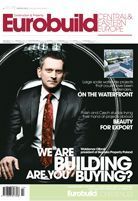In the final stage of the tender only one other offer was under consideration, a proposal from a consortium led by Metroul, with German architectural studio Albert Speer and two Romanian studios - IHS Romania and Western Outdoor. The previous plan for the city was drawn up in 2000 and was meant to expire in 2010, but has now been extended to 2016, by which time the so-called 'Dynamic Masterplan' should have been completed, which is again intended to last for another ten years. Without such a plan there is no legal basis to issue building or demolition permits within the city.
Nothing unusual
Why has a university been heading up such a consortium to draw up these plans? Associate professor Tiberiu Florescu, the dean of the university's faculty of urbanism, explains: "It's not unusual. The university has a powerful urban design research centre." He goes on to point out that the earlier urban plan was too inflexible for the city's further development. "The previous masterplan was conven




























































